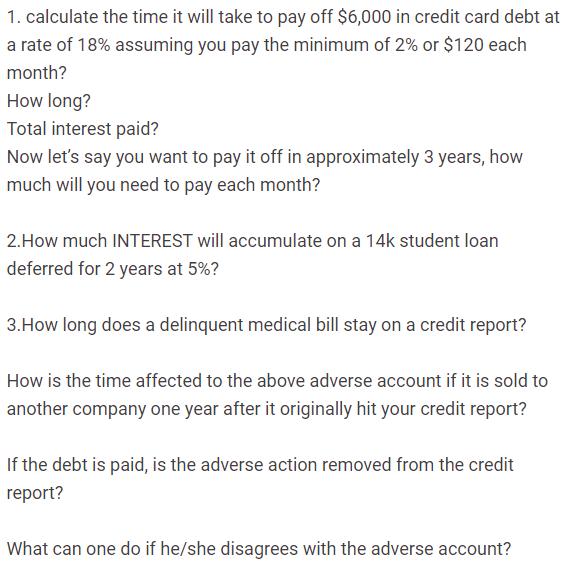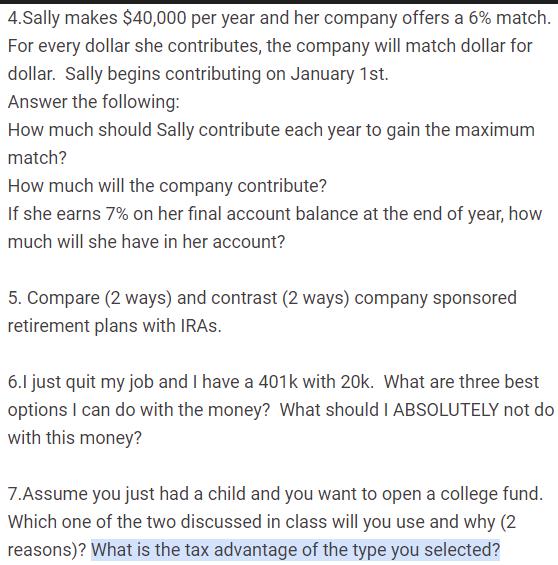Question: 1. calculate the time it will take to pay off $6,000 in credit card debt at a rate of 18% assuming you pay the


1. calculate the time it will take to pay off $6,000 in credit card debt at a rate of 18% assuming you pay the minimum of 2% or $120 each month? How long? Total interest paid? Now let's say you want to pay it off in approximately 3 years, how much will you need to pay each month? 2. How much INTEREST will accumulate on a 14k student loan deferred for 2 years at 5%? 3. How long does a delinquent medical bill stay on a credit report? How is the time affected to the above adverse account if it is sold to another company one year after it originally hit your credit report? If the debt is paid, is the adverse action removed from the credit report? What can one do if he/she disagrees with the adverse account? 4.Sally makes $40,000 per year and her company offers a 6% match. For every dollar she contributes, the company will match dollar for dollar. Sally begins contributing on January 1st. Answer the following: How much should Sally contribute each year to gain the maximum match? How much will the company contribute? If she earns 7% on her final account balance at the end of year, how much will she have in her account? 5. Compare (2 ways) and contrast (2 ways) company sponsored retirement plans with IRAS. 6.1 just quit my job and I have a 401k with 20k. What are three best options I can do with the money? What should I ABSOLUTELY not do with this money? 7.Assume you just had a child and you want to open a college fund. Which one of the two discussed in class will you use and why (2 reasons)? What is the tax advantage of the type you selected?
Step by Step Solution
3.46 Rating (159 Votes )
There are 3 Steps involved in it
1 To pay off 6000 of credit card debt at a rate of 18 with a minimum payment of 2 or 120 a month it will take approximately 44 months or 367 years to ... View full answer

Get step-by-step solutions from verified subject matter experts


